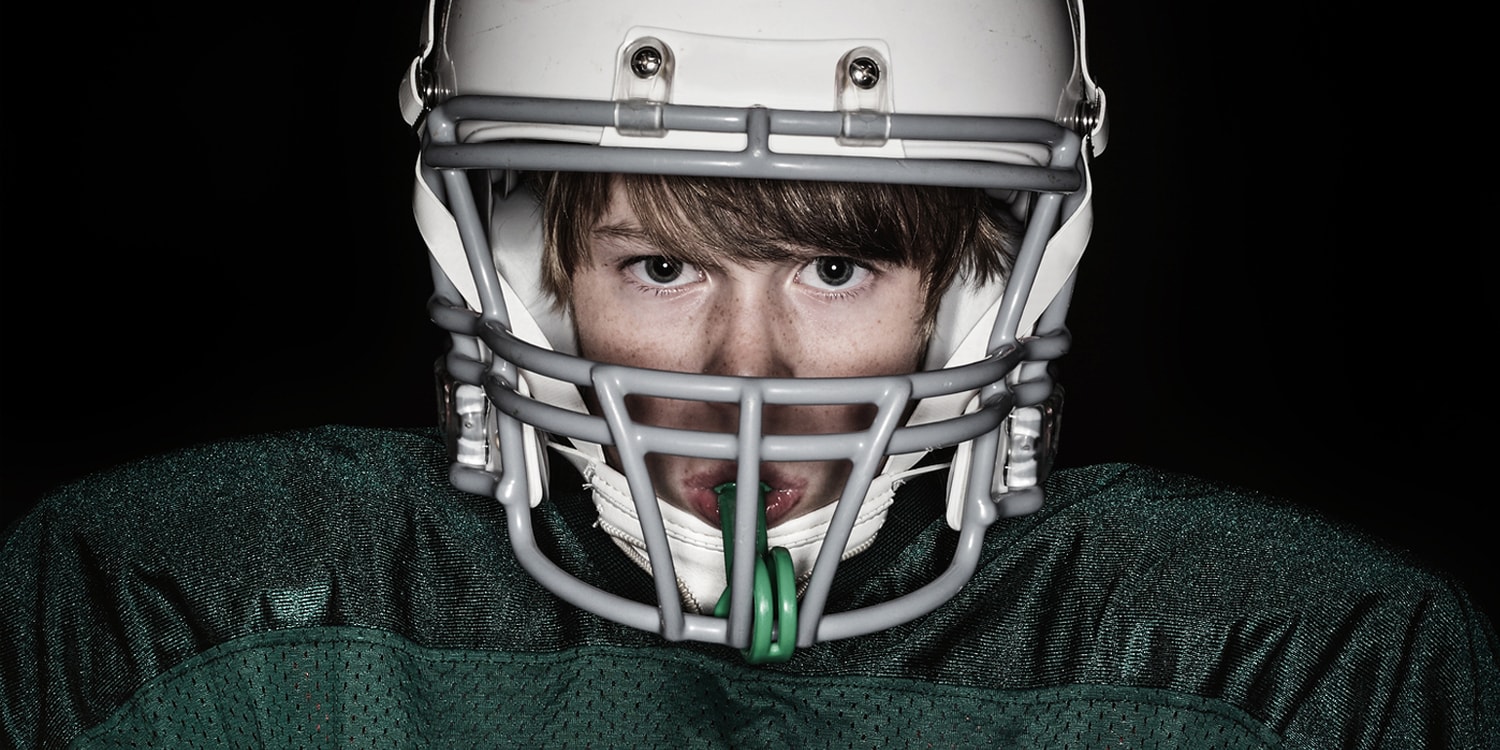5 Facts Every Athlete Should Know about Sports Guards

Did you know that 75% on injuries to high school athletes occurred when mouth guards were not worn? To ensure you or your child doesn’t fall in line with this statistic, check out these five important facts every athlete should know about mouth guards.
1. Without a mouth guard, your front teeth are the most at risk.
If you’re looking for reasons to purchase a mouth guard, look no further than your front teeth. Your front teeth naturally stick out further than the rest of your bite. This makes them particularly susceptible to injuries when receiving trauma to the face. Your bottom teeth, on the other hand, are usually a bit safer, as they’re further back. With a mouth protector, you can rest assured that your upper teeth, lips, tongue, and cheek lining are protected while you’re playing sports.
2. Mouth guards are an essential piece of athletic gear, even for non-contact sports.
We recommend that you implement a mouth guard as a standard piece of athletic equipment from an early age. While it is particularly important to wear a mouth guard when playing contact sports like boxing, football, and rugby, you’d be surprised at what non-contact sports can cause dental injuries! Any one from gymnasts and figure skaters, to surfers and skateboarders can benefit from wearing a mouth guard.
3. When buying a mouth guard, you have a few options to choose from.
If you’re in the market for a mouth guard, you’ll likely come across three different types: boil and bite, stock, and custom-made.
- Boil and bite mouth guards are typically sold at any sporting goods outlet. First, you’d put them in hot water, and then you’d bite them to form them to the shape of your mouth. When purchasing these mouth guards, be sure to look for the ADA Seal of Acceptance—this helps to ensure these materials are safe for your teeth.
- Stock mouth guards are your next option. These are inexpensive and come ready to wear. That said, they often don’t fit very well as they come pre-formed. This makes them particularly bulky and can inhibit your breathing and talking.
- Custom-made mouth guards are your best option for keeping your teeth safe. Your dentist at Hinsdale Dental will simply take an impression of your teeth, which is then used to create a mouth guard made specifically for you. While these can be a more expensive option, they are also built to protect your individual smile and can save you a lot of money in dental repairs should you get injured.
4. If you have braces, mouth guards are a must.
For those with braces or bridgework, a properly fitted mouth guard is particularly necessary. Mouth guards will protect your brackets as well as your cheeks and lips should a blow to the face occur. Be sure to check with your dentist about the best mouth guard for you—you’ll want to get a sports guard that protects both your upper and lower teeth if you have braces.
5. To protect your teeth, make sure you take proper care of your mouth guard.
There are a number of precautions you can take to ensure your custom-fit mouth guard stays in good condition.
- To keep your mouth guard clean between games, rinse it or brush it with a toothbrush and toothpaste.
- Clean the mouth guard in cool, soapy water regularly. Then, make sure to rinse well!
- Bring your mouth guard to your regular dental check-ups for evaluation.
- Use a sturdy, ventilated container to protect your mouth guard.
- Keep your mouth guard away from the sun or hot water.
- Store your mouth guard in a safe place (away from pets)!
- Replace your mouth guard if it has signs of wear and tear.
Finally, when you have receive your custom-made mouth guard, discuss with your dentist the ideal time to replace your mouth guard. This timeline may vary for growing children or patients with braces.
Keeping your teeth safe is our priority. To get your custom-made sports guard, call Hinsdale Dental today to set up your appointment!
Return to Blog